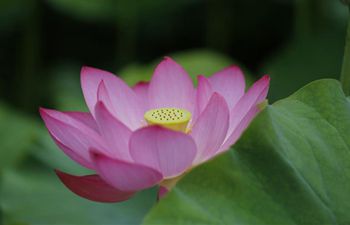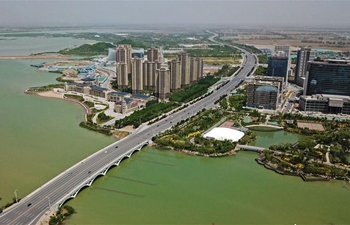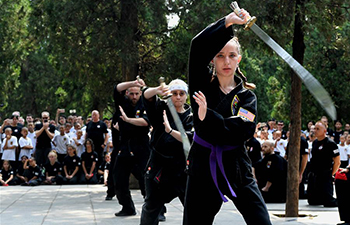by Burak Akinci
ANKARA, July 3 (Xinhua) -- Turkish activists say that the female representation in Turkey's parliament has increased in the latest election, but it is insufficient and there is still a long way to go to achieve gender equality in politics.
The number of Turkish women lawmakers has steadily increased in the past two decades. In the June 24 election, the percentage of women lawmakers in the Turkish parliament increased to 17.3 percent, with 103 female members in the 600-seat assembly, from 14.7 percent in 2015 and 9.1 percent in 2007.
Ahead of the June 24 elections, a total of 904 women candidates from seven political parties were running for the parliament, a record high in Turkey's history.
Despite the increase, Turkish activists argued that Turkey's politics remains the primary playground of men, and called for an outright reform in election laws in order to guarantee an equal gender participation of the policymaking institution.
"Women in Turkey claim more active role in policymaking mechanism, but we are far of having achieving our goals," said Nuray Karaoglan, the president of KA-DER, a civil rights group who fights against gender inequality and for increasing women political representation in Turkey.
In 33 of 81 provinces, female candidates failed to be elected into the parliament, so the KA-DER wants a ministry devoted entirely to the situation of women.
When Turkish women first took part in parliamentary elections in 1935, a year after having been granted eligibility, the number of female representatives, at 18, made up only 4.6 percent of the total seats.
However, by the time Turkey moved to a multiparty system in the early 1950s, the percentage of women in parliament fell to less than one percent, mainly because voters would not elect a woman to represent them in rural patriarchal communities.
Since it first came to power in 2002, the ruling Justice and Development Party (AKP), who won the June 24 elections along with the reelection of President Recep Tayyip Erdogan with sweeping executive powers, helped increase female presence in Turkish politics.
The highest number of woman deputies come from the AKP, which won 295 seats. A total of 126 AKP candidates were women, 53 of whom won a seat in the 600-seat parliament.
There is also good news for women. Last year's constitutional referendum lowered the minimum age of eligibility from 25 to 18 and paved the way for the 22-year-old Rumeysa Kadak from the AKP to become Turkey's youngest lawmaker.
Kadak, who recently graduated as an English teacher, told Daily Sabah that she will "prioritize education and youth projects," pointing out that the youth could be best understood by themselves.
But all in all, it is still rare for women to hold major political office in Turkey.
Tansu Ciller, a professor of economics, was elected as the first female prime minister of Turkey in 1993 and served until 1996. However, there have been only about 20 women having served as ministers in modern Turkey's political history.
The selection process of political parties for potential lawmakers leaves limited room for women, as even social-democratic and progressive parties, such as the main opposition People's Republican Party (CHP), let men do the job, said Karaoglan.
In comparative terms, 84 years after gaining rights to vote and stand for election, women in Turkey are below the world average of female parliamentary representation and are still struggling in a male-dominated political arena for equal political rights.
















